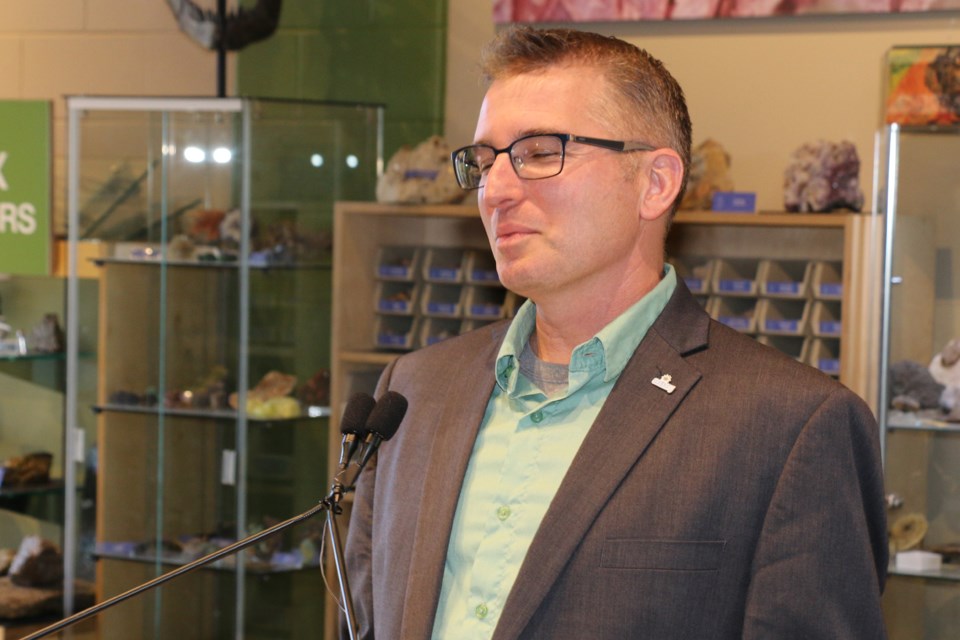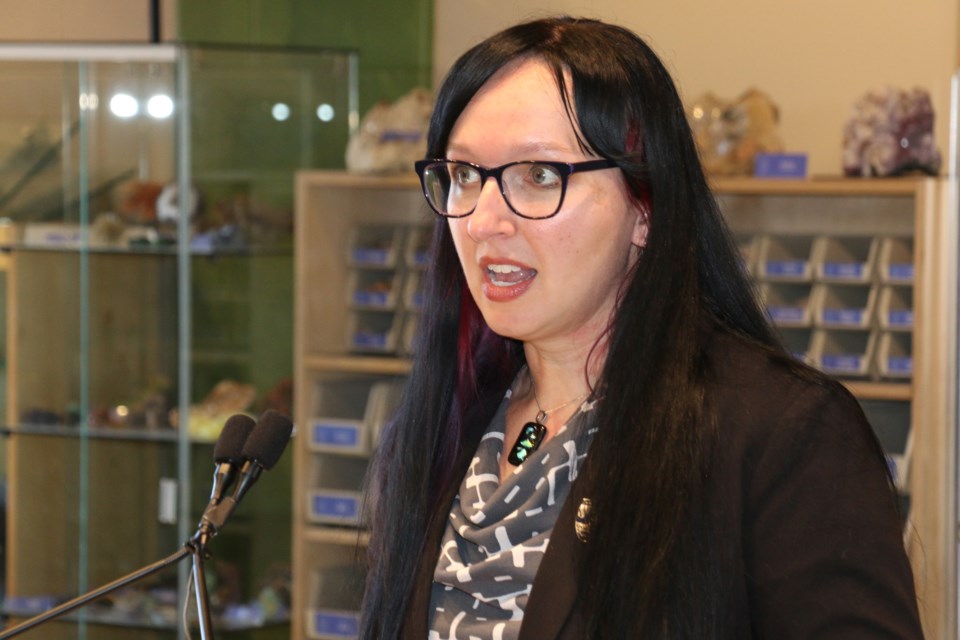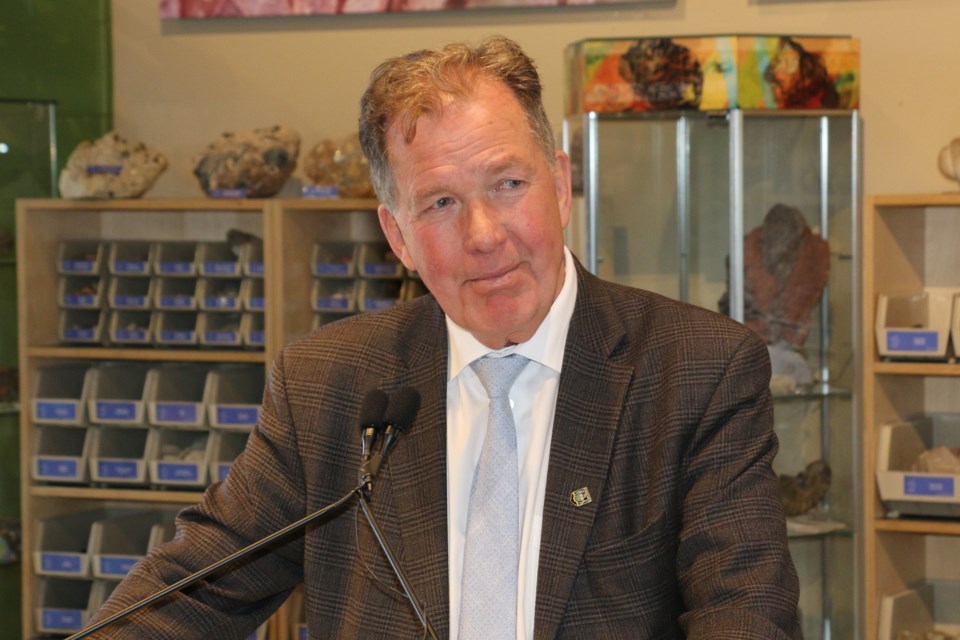Ontario Mines Minister George Pirie said today Ontario is committed to strengthening the province’s critical minerals strategy in the global race to ensure there is a stable supply chain for battery electric vehicles by spending millions in new science and technology to help do that.
He said the effort is already underway in Sudbury to develop new ways to procure more critical minerals.
Pirie said the Ontario government will be spending $15 million over the next three years to expand the Ontario Critical Minerals Innovation Fund (CMIF), which is a re-announcement of the funding increase that was announced as part of the Ontario budget earlier this year.
Pirie was speaking to a group of mining supply and service representatives at Dynamic Earth on May 6.
“This investment is another milestone for our government’s Critical Minerals Strategy and is about building a made-in-Ontario supply chain to meet the increasing global demand for critical minerals needed to manufacture technologies like batteries and electric vehicles,” said Pirie.

“We know investments like this drive innovation, help solve mining and supply chain challenges, enhance our province’s competitive advantage and leverages Ontario’s highly educated and experienced workforce.”
The innovation fund has already provided $500,000 to Vale Base Metals, which is collaborating with MIRARCO (Mining Innovation Rehabilitation and Applied Research Corporation) at Laurentian University to do research on a bioremediation project exploring the idea of using bacteria to extract useful minerals from old mine tailings in Sudbury.
Glen Watson, Vale Base Metals senior sustainability specialist, said he was pleased with the funding because it could lead to innovative and sustainable ways to process mine waste.
"The idea that we might be able to use bacteria and bugs to remove metals from waste materials is fantastic and in this day and age where critical minerals are all the rage and all the talk, that opportunity to extract more value from waste materials is a very exciting prospect,” said Watson.
“But … perhaps more importantly for me, is rendering those tailings less reactive.”
MIRARCO president and CEO Dr. Nadia Mykytczuk said the work is important to look at different ways of doing things to decarbonize the mining industry as much as possible.
"I've been in Sudbury nearly 20 years, and I've been studying those tailings and the bacteria that occur there for those 20 years. And it was always from the envelope 'can we fix what they're doing and damaging the environment and producing a challenge like acid mine drainage?' And it really isn't until this shift towards critical minerals and understanding how we're going to do this incredible transition in decarbonizing our entire world that we're starting to look at those wastes differently," she told the audience.
Mykytczuk said the old ways of mining and refining and getting rid of waste are no longer sustainable.

"This is where innovation is key. That transition that we're going to see in the next couple of years and decades, requires innovation, we can't simply go and extract those metals the same way that we've mined over 100 years — we need new technologies to be able to do this better and do this more sustainably,” she said.
“And so we're very happy to be advancing … and advancing bioleaching technologies in being able to extract those metals from those mind wastes, dealing with the legacy issue and addressing that iron and that sulfur and forming commodities out of those as well. And moving to a zero waste solution.”
Len Gillis covers mining and health care for Sudbury.com.
